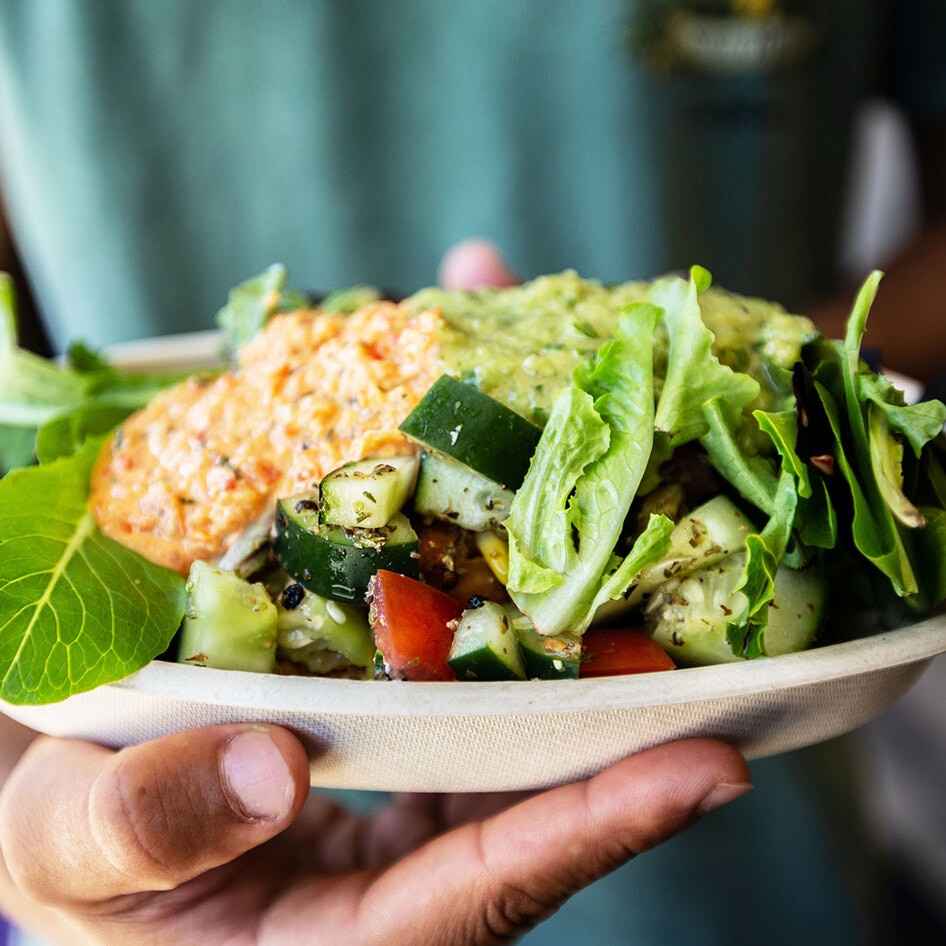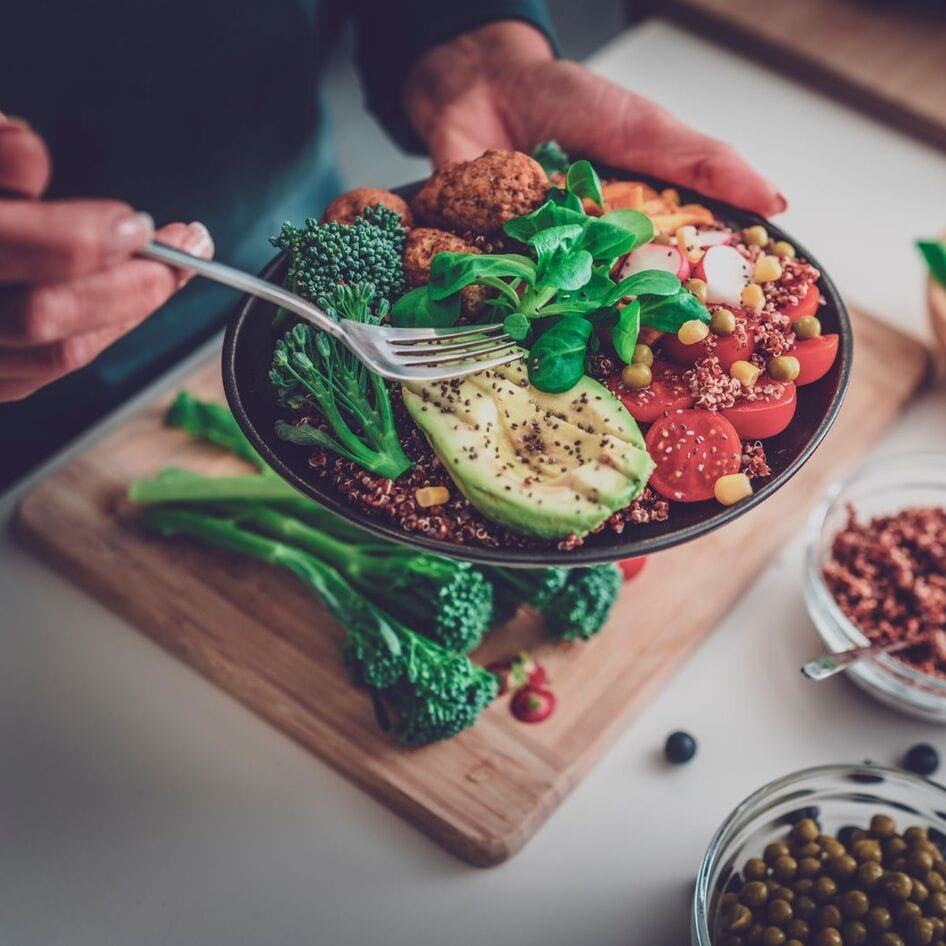Forks Over Knives
In a nation that spends trillions on health care, one film puts the power of good health back in the hands of Americans.
May 5, 2011
For the better part of the last few years, our nation’s “health care crisis” has dominated daily news and done its fair share of fear mongering among the US population. With each newscast, ominous music plays in the background as frightening buzzwords are spouted off: childhood obesity, heart disease, diabetes, and cancer. As the country looked toward Washington for answers, Brian Wendel, Lee Fulkerson, and their crew took the road less traveled by mainstream media, putting the finishing touches on a project determined to tell the world about a revolutionary—and simple—solution to its ailing health: Focus on your fork, and soon forget the cost of going under the knife.
Forks Over Knives, Wendel’s first feature-length documentary, explores the powerful correlation between diet and disease, and the conclusion is hard to dispute. The film focuses on the groundbreaking research of T. Colin Campbell, PhD, and Caldwell Esselstyn, Jr., MD. Raised to revere milk as “nature’s perfect food,” both men discovered alarming facts about its relation to disease, along with other animal products, through years of research. When the two finally met, the combination of Campbell’s scientific data with Esselstyn’s clinical trials solidified their conclusion: the Standard American Diet is killing us.
Campbell’s powerful publication, The China Study, lies at the root of the film. “I knew there was a fair amount of research that whole-foods, plant-based nutrition can prevent—and in many cases reverse—disease, but I didn’t know the extent of it until I read The China Study,” Wendel says. In the end, he left his 14-year career in real estate, hired the most talented film crew he could find, and set out to make Forks Over Knives. Lee Fulkerson, writer and director, was hesitant to join the project at first. At the time, Fulkerson’s own diet consisted of multiple energy drinks and sodas—approximately four for breakfast—to make it through his hectic days, until dinnertime delivered a fast-food double cheeseburger, onion rings, and chocolate shake. In an unexpected twist, Fulkerson joins the ranks of the film’s “reality patients,” seeking to improve his own well-being.
Joey Aucoin is another featured patient who adopts a plant-based diet in the film, beginning the experiment with a laundry list of ailments, including high cholesterol (320 to be exact), type 2 diabetes, and high risk for both heart attack and stroke. His medication set him back roughly $200 a month, in addition to the cost of his health insurance. He embodied one of the film’s featured proverbs: “One-quarter of what you eat keeps you alive. The other three-quarters keeps your doctor alive.” At the end of his trial, Aucoin had lost weight, lowered his cholesterol, blood pressure, and blood sugars, and successfully ditched all nine drugs he was taking.
The patients’ personalities paired with an intimate look at the lives of Campbell and Esselstyn give the film a relatable, anecdotal edge to gently guide viewers through the compelling science. “We wanted to tell stories, because that’s how information sticks with people. We didn’t want to have a talking-heads documentary,” Wendel says. As production of the film proceeded, similar changes began spreading through the rest of the crew. Every person on the core team adopted a plant-based diet, including the producer, co-producer, and interns. Based on the omnivorous crew’s initial reactions, as well as the positive response at screenings, Forks Over Knives is striking a chord.
But it isn’t purposeful shock value or scare tactics that drives Forks. Both ends of the spectrum are represented in an effort to achieve a credible, even-handed tone. “I personally don’t like telling people what to do, but this film is about giving people the information so they can make truly informed decisions,” Wendel says. With advanced screenings in cities across the US, the movie is set to be officially released May 6. “It’s really easy to be negative, and in this film we focus on the positive. This is a message of hope; all we have to do is go down the right aisle in the supermarket,” Wendel says.
JUMP TO ... Latest News | Recipes | Guides | Health | Subscribe







